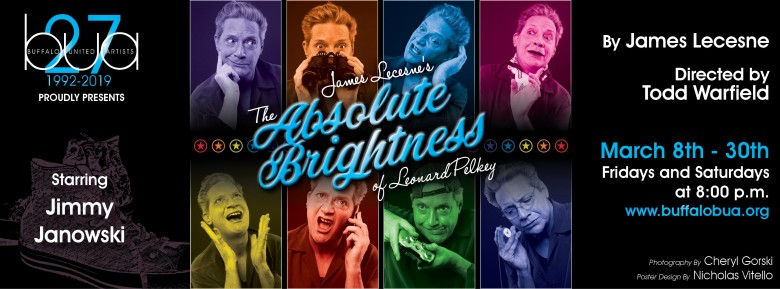
In the age of nationwide marriage equality, do we really need such an airbrushed sacrificial figure in order to come to the conclusion that murdering gay teens is wrong? Even the projected image of Leonard (a blurry photo of a blond Caucasian) seems designed to make the subject familiar, nonthreatening, and even attractive (projections by Aaron Rhyne). We hear how his zest for life inspired so many to be better versions of themselves. Despite Leonard's idiosyncrasies, he feels like the product of a public relations campaign, crafted to achieve maximum sympathy with the off-Broadway crowd: He loves the theater, owns an antique pocket watch (but not a cellphone), visits the elderly, and possesses an encyclopedic knowledge of women's hairstyles from the 1980s. Lecesne reveals in a program note that Leonard is completely fictitious, but he really didn't need to write that for us to know it.

Sadly, something about this script feels trapped in a time warp with that landmark 2000 play. Under the direction of Tony Speciale, Lecesne's gorgeously crafted language captures a unique cadence and perspective for each of his subjects, giving us a sense of not only them as individuals, but the larger ecosystem of this small town on the Jersey Shore. Lecesne (author of the Academy Award-winning film Trevor and cofounder of the LGBT suicide prevention charity the Trevor Project) plays each role with specificity and care so that you easily forget it's just him up there. When Leonard's body emerges, the detective suspects a hate crime. A picture emerges of a highly flamboyant young gay man, not afraid to dance to the beat of his own drum and flaunt his queerness to the world. In his hunt for Leonard, he speaks to a British expatriate drama teacher, an elderly German watch repairman, and even a kindly old mob wife. The detective immediately starts snooping around Leonard's old stomping grounds. His Aunt Ellen contacts Detective Chuck DeSantis to find him. The story is as sympathetic as it is predictable, leaving the viewer with the hollow feeling of having one's beliefs reinforced, but not challenged.įourteen-year-old Leonard Pelkey has gone missing.


That's the takeaway from James Lecesne's exquisitely acted, beautifully written, and thoroughly facile new solo play The Absolute Brightness of Leonard Pelkey, now making its off-Broadway debut at the Westside Theatre after an earlier run at Dixon Place.

Leonard Pelkey died for our sins - specifically for the sin of not being fabulous enough. James Lecesne wrote and stars in The Absolute Brightness of Leonard Pelkey, directed by Tony Speciale, at the Westside Theatre.


 0 kommentar(er)
0 kommentar(er)
